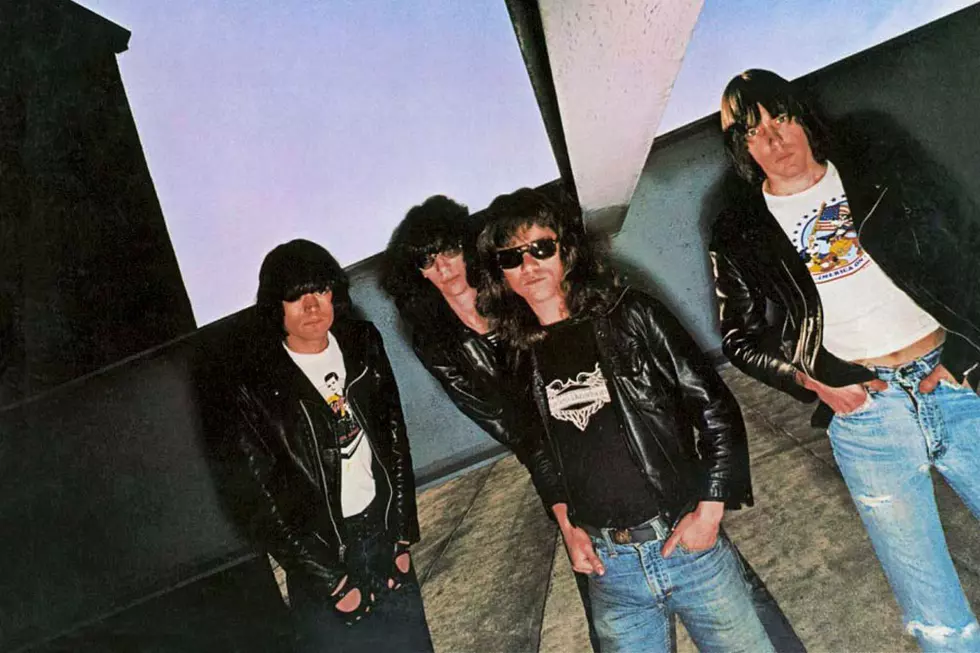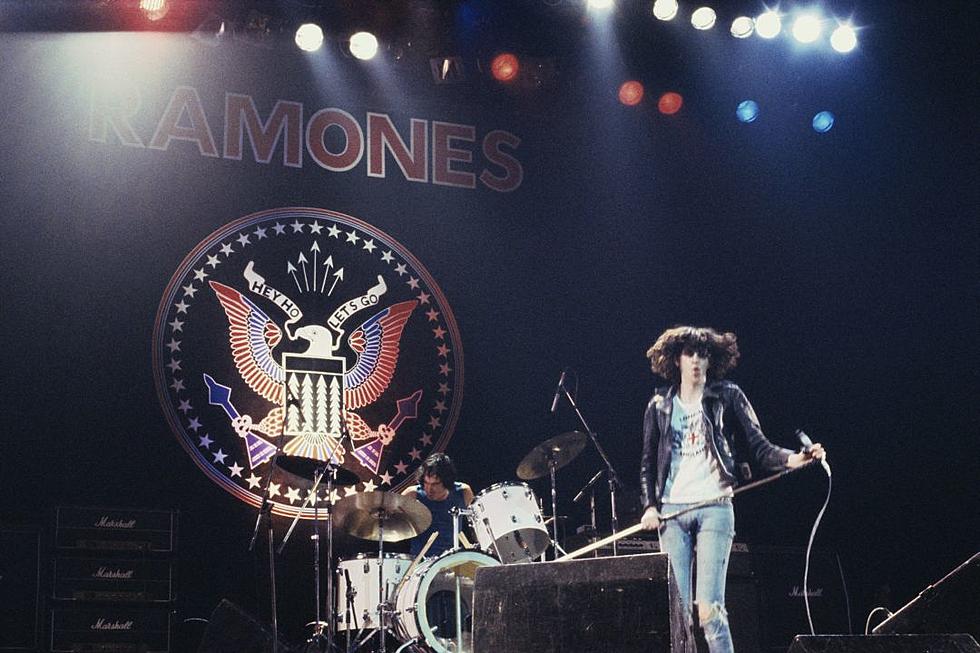In Defense Of … The Ramones’ ‘Pleasant Dreams’
By the time the '80s started rolling, the Ramones were in an odd place. They had set the stage for countless artists but were unable to walk through those doors they helped open.
"The Ramones were floundering," says Gary Kurfist in the book 'Ramones: An American Band.' Kurfist had just taken over managerial duties for the band in 1981 and attempted to move them closer to commercial radio. "The other bands that they had paved the way for were passing them by, so they had to rebuild and try to stay alive."
For their 1980 album, 'End of the Century,' legendary producer Phil Spector was brought in -- everyone counting on the hit maker to finally land the Ramones some radio airtime. The pairing got a lot of hype but failed to get them on the airwaves. After that, guitarist Johnny Ramone realized that the band was never going to make the big time.
"We did the album with Phil Spector, here was our big chance, and again we didn't sell any records," he said in the Ramones documentary 'End of the Century.' "At that point I knew, I finally accepted that. Let's just try and maintain our career ... do the best we can do. Accept it. This is your spot in life."
With 1981's 'Pleasant Dreams,' however, the band's management decided to keep trying and tossed around name producers like Ted Templemen and Tom Werman before deciding on Graham Gouldman. The former member of the British pop band 10cc was brought in less because of his producer skills, and more because of his credibility as a songwritter.
Gouldman had written several hit songs for acts in the '60s, including the Yardbirds ('For Your Love'), Herman's Hermits ('No Milk Today') and the Hollies ('Bus Stop'). The idea was that this was a guy who knew hit songs and could help the Ramones translate their sound into big hits. Johnny was more than unsure: "Then we start giving in more to pressure. Graham Gouldman. This guy ... he's in 10cc. He should be producing a Ramones record?? Ridiculous!"
Released in the summer of 1981, 'Pleasant Dreams' was greeted with hesitation by not only radio, but also by many hardcore fans who thought their heroes were moving even further away from their signature sound. True, the album is more polished than any of their previous efforts (the Spector album was polished, but in a Spectorian way). And some of the songs were a bit more rounded along the edges. But nearly a quarter century later, the record flows and rings out like one hell of a solid album.
The album kicks off with the band's mission statement, 'We Want the Airwaves.' Quoting the Doors' immortal line "We want the world, and we want it now," the Ramones essentially blast '80s mainstream radio and demand to be heard: "We want the airwaves if rock is gonna stay alive."
And while that might sound a bit boastful, they earned the right over the previous six years. "Mr. programmer, I got my hammer, I'm gonna smash my radio" could be seen as a severe case of biting the hand that feeds, but the band was pretty much at rope's end in that department anyway, so why not chomp away? Musically, it's not all that far removed from home base, and the extra polish doesn't drain any of its power.
The next track, 'All's Quiet on the Eastern Front,' is a real raver featuring sharp rhythmic accenting and cool-cat backing vocals. It's one of the great lost, neglected Ramones songs. The guitars are toned down a bit, and the song has more of a pop sheen than what we're used to from the group, but it's not a total castration.
The album's best song, 'The KKK Took My Baby Away,' is also one of the band's best-ever songs ... and also one of the most legendary in its songbook. Written by singer Joey Ramone, the song is a serious stab at Johnny, who had stolen Joey's girlfriend. Johnny ended up marrying her, and the relationship between the two Ramones was never the same. Musically, the song is as catchy as any in their catalog. It's pure pop, Ramones style, but getting a Top 40 radio to play a song called 'The KKK Took My Baby Away'? No way, no matter how catchy that song is.
'Pleasant Dreams' really lets Joey, always the pop heart of the band, shine brightly throughout. Songs like '7-11,' 'Come on Now' and 'She's a Sensation' take the best elements of mid-'60s pop and merge them with the Ramones' ingrained rock sensibilities. Gouldman tried hard to focus on that side of the band, something that had been there since the first album, and mold it into shape -- a New York City take on the sounds of the British Invasion, if you will.
Even if some critics panned the album for its smoother, polished sound, not everyone hated it. Both the New York Times and the Village Voice rated it highly, and die-hard fans kept the flame burning. Listening to the album again after all these years, it holds up incredibly well, and if anything, it shows off another dimension to the band while never straying too far from its core.
The Ramones soldiered on after 'Pleasant Dreams,' regularly releasing albums to varying degrees of commercial and artistic success. The Ramones should have been one of the biggest bands of all time, not just one of the most influential. But as Johnny foresaw in 1980, they were never able to step out of the circle they created. Despite their best effort at times.
More From Diffuser.fm









